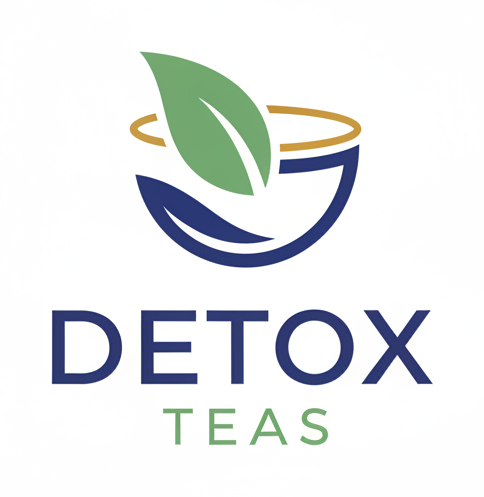Tea has been enjoyed for thousands of years, not just for its comforting warmth and diverse flavors, but also for its potential health benefits. From traditional herbal blends to modern detox teas, this beloved beverage continues to play a significant role in wellness routines worldwide. Let’s explore the various ways drinking tea can contribute to your overall health and well-being.
Antioxidant Powerhouse
One of the primary health benefits of tea comes from its rich antioxidant content. Antioxidants are compounds that help protect your cells against free radicals, which may play a role in heart disease, cancer, and other diseases. Many teas, especially green tea, are packed with polyphenols, a type of antioxidant that has been linked to various health benefits.
The Morning Boost tea from SkinnyMint, for example, contains green tea, which is known for its high antioxidant content. Incorporating this tea into your daily routine can be a tasty way to increase your antioxidant intake.
Supporting Heart Health
Regular tea consumption has been associated with improved heart health. Studies have shown that drinking tea may help reduce the risk of heart disease by lowering bad cholesterol levels and improving blood vessel function. The flavonoids found in tea may help reduce inflammation and improve the health of the lining of blood vessels.
Boosting Metabolism and Weight Management
Certain teas have been linked to increased metabolism and potential weight management benefits. Green tea, in particular, has been studied for its potential to boost metabolic rate and increase fat burning. While tea shouldn’t be considered a magic solution for weight loss, it can be a helpful addition to a balanced diet and regular exercise routine.
For those looking to support their weight management goals, the 28 Day Ultimate Teatox program combines different tea blends designed to complement a healthy lifestyle.
Promoting Digestive Health
Many herbal teas have been traditionally used to support digestive health. Peppermint tea, for instance, is known for its ability to soothe an upset stomach and relieve bloating. Ginger tea is another popular choice for its potential to ease nausea and support healthy digestion.
The Night Cleanse tea from SkinnyMint contains ingredients like senna leaves and dandelion root, which are traditionally used to support digestive health and promote regularity.
Hydration and Skin Health
Staying hydrated is crucial for overall health, and drinking tea can contribute to your daily fluid intake. Proper hydration is essential for maintaining healthy skin, supporting kidney function, and regulating body temperature. While caffeinated teas can have a mild diuretic effect, the overall fluid intake from drinking tea contributes positively to hydration.
Mental Alertness and Cognitive Function
The caffeine and L-theanine found in many teas, particularly green and black teas, can have positive effects on mental alertness and cognitive function. L-theanine is an amino acid that can promote relaxation without drowsiness, potentially leading to improved focus and concentration when combined with caffeine.
Bone Health
Some studies suggest that regular tea drinkers may have higher bone density compared to non-tea drinkers. While more research is needed, the potential link between tea consumption and bone health is promising, especially for older adults concerned about osteoporosis.
Immune System Support
Many teas contain compounds that may help support the immune system. For example, green tea is rich in EGCG (epigallocatechin gallate), a powerful antioxidant that has been shown to enhance immune function. Herbal teas like echinacea and elderberry are also popular choices for immune support, especially during cold and flu season.
Stress Reduction and Relaxation
The ritual of preparing and drinking tea can be a calming, mindful practice that helps reduce stress. Many herbal teas, such as chamomile and lavender, are known for their calming properties and may help promote relaxation and better sleep.
Oral Health
Some studies suggest that the catechins in tea may help inhibit the growth of bacteria associated with tooth decay and gum disease. While tea shouldn’t replace regular dental hygiene practices, it may contribute to overall oral health.
Conclusion: Embracing Tea for Health
While tea offers numerous potential health benefits, it’s important to remember that it’s not a cure-all. The benefits of tea are best realized when it’s part of an overall healthy lifestyle that includes a balanced diet, regular exercise, and adequate sleep.
When incorporating tea into your wellness routine, consider exploring different varieties to find the ones you enjoy most. From traditional green and black teas to herbal blends and specialized detox teas like the Detox Cherry Bomb, there’s a wide world of teas to discover.
Remember that while most teas are safe for regular consumption, some may interact with certain medications or have effects on specific health conditions. If you have any concerns, it’s always best to consult with a healthcare professional before significantly changing your tea consumption habits.
By embracing tea as part of your daily routine, you’re not just indulging in a delicious beverage – you’re potentially supporting your health in numerous ways. Whether you’re sipping a cup of green tea in the morning for an antioxidant boost, enjoying a herbal blend to aid digestion after meals, or winding down with a calming chamomile in the evening, tea can be a simple yet effective addition to your health and wellness journey.


